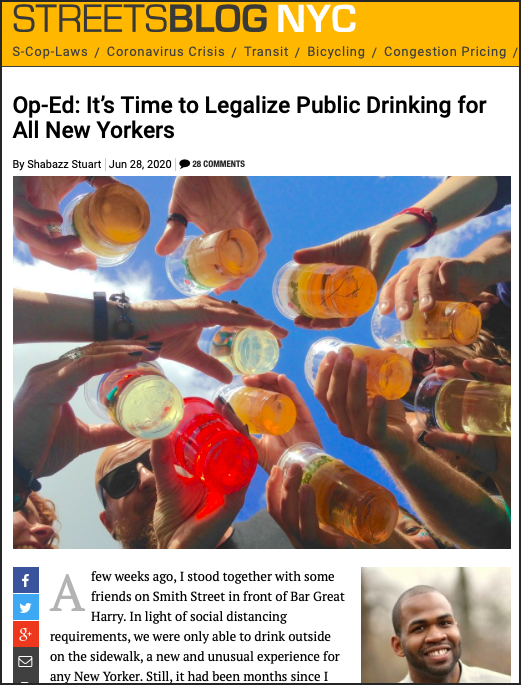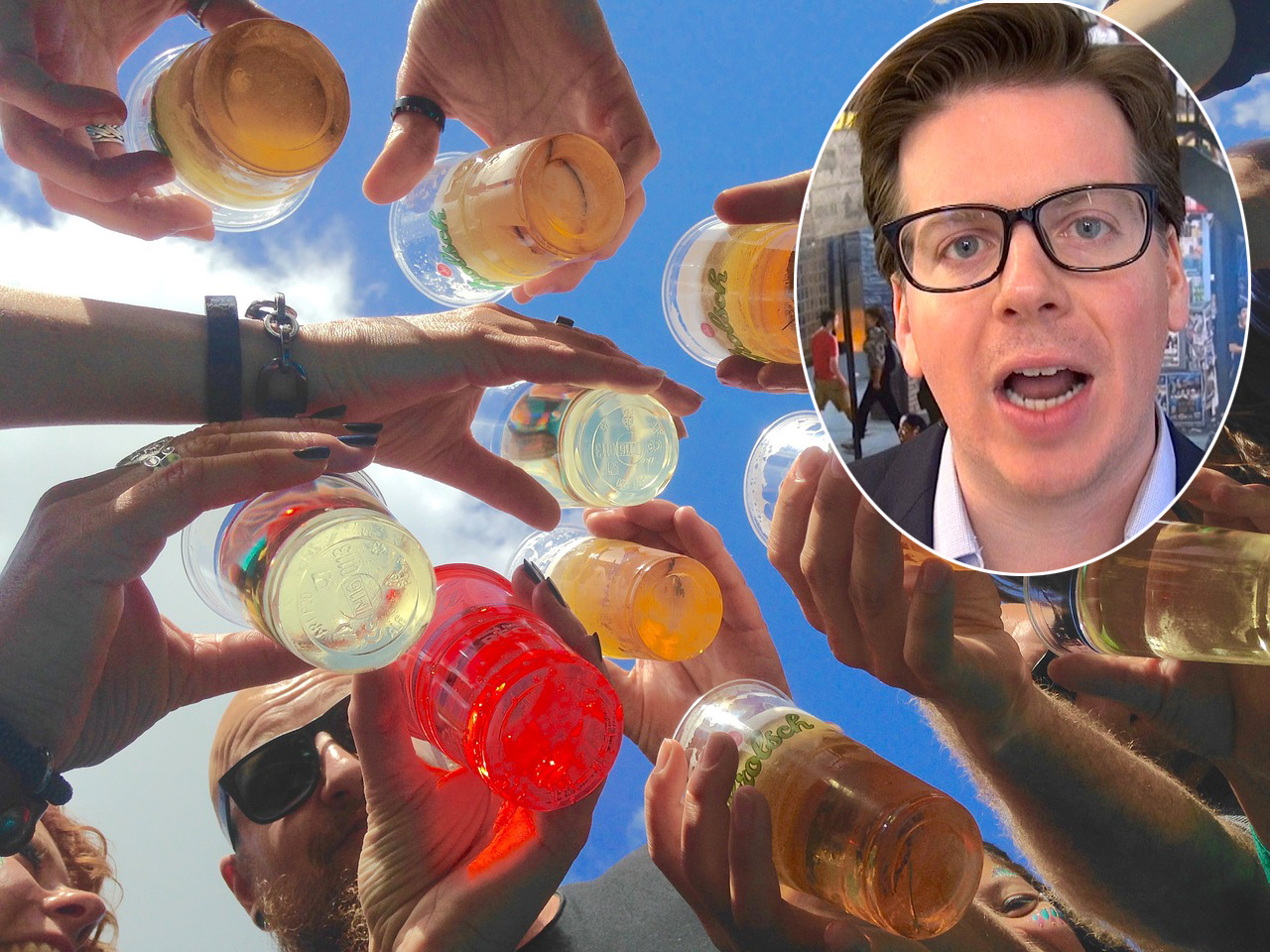Raise a glass — Streetsblog gets action!
One day after this website published Shabazz Stuart's clear-eyed op-ed calling for the repeal of open container laws because they often lead to racially biased policing, Assembly Member Robert Carroll of Brooklyn introduced legislation to legalize public drinking — a move that is also driven by the needs of restaurant and bar owners during the COVID-19 crisis.
"I drafted the bill back in April, but [Stuart's] op-ed articulated the issue so clearly that I felt confident that it's the right bill, so I introduced it on Monday," Carroll told Streetsblog.
"The illegality of public drinking is stupid, given that people drink wine as they listen to the Philharmonic in the park and no one gets a ticket, but someone is hanging out with their friends or buys a nutcracker from a vendor on the beach and gets a ticket?"
Initially, Carroll said he was inspired to act after the governor allowed restaurants and bars to offer take-out booze earlier in the crisis to help the eateries stay in business. As the weather improved, of course, areas around restaurants — and whole roadways like St. Marks Place in the East Village — became stand-up beer gardens. (Prompting the governor to tweet, "Don't make me come down there.")
"Now he and the mayor are talking about issuing violations to bars and restaurants, but the real answer is to make public drinking legal and to create open streets where people can do it safely," Carroll said. "That's a better solution in the short term than to reopen bars and restaurants for indoor drinking."

But central to Carroll's bill is the issue of combatting overpolicing, which was the point of Stuart's op-ed.
"We know that the city is policed in different ways, and that, for instance, Black and Latino men are overpoliced," Carroll said. "As you reported, something like 99 percent of the jaywalking tickets went to Blacks and Latinos.
"A small violation gives cops legal cause to stop them, so my bill would give police one less reason to stop people," he said.
Stuart agreed.
"This is a really important and reasonable first step," said Stuart, who runs Oonee, the bike parking company and has been consulting with the restaurant industry. "Laws should react to topical context of the time and this accomplishes that, and more importantly reduces the potential for selective enforcement in communities of color. When the pandemic ends, I hope the city leadership will have a real conversation about the usefulness of open container laws considering their limited effect on vice, contribution to systematically racist policing and negative impacts on business."
Carroll's bill — if it becomes law — would be in effect for the duration of the state disaster emergency executive order. But Carroll said it should be made permanent.
"If we don’t change this law it is inevitable that the police will disproportionately enforce open container laws on the young and Black and brown New Yorkers," he said. "This is a smart common-sense policy."






